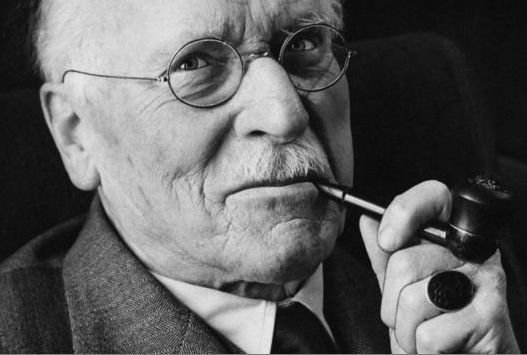The views expressed in our content reflect individual perspectives and do not represent the authoritative views of the Baha'i Faith.
The Swiss physician, psychiatrist, and philosopher Carl Gustav Jung observed that:
Oddly enough, the paradox is one of the most valuable spiritual possessions, while uniformity of meaning is a sign of weakness. Hence a religion becomes inwardly impoverished when it loses or reduces its paradoxes; but their multiplication enriches because only the paradox comes anywhere near to comprehending the fullness of life. Non-ambiguity and non-contradiction are one-sided, and thus unsuited to express the incomprehensible. – Psychology and Religion, p. 18.
Paradoxes function to reveal deep meaning and insight through the surface appearance of contradiction. Metaphysical in nature, a paradox challenges us to think in new ways and see new realities.
When a Zen Buddhist teacher presents a puzzling koan to a student, the teacher wishes to elicit a metaphysical response, not an intellectual one. But ambiguity and contradiction present themselves even to the western, scientific mind. For example, tests of hypotheses with exacting scientific methodology, rather than resolving the question under consideration, often bring forth a multitude of new questions. Knowledge actually expands rather than contracts, as if the more we learn, the less we realize that we know. The metaphysical solution to this paradox? Knowledge is infinite.
Paradoxes readily emerge from the teachings of the Baha’i Faith. One refers to the relationship between the individual human being and God:
At all times I am near unto thee, but thou art ever far from Me. – Baha’u’llah, The Hidden Words, p. 29.
How can two entities be simultaneously close to, yet far from, each other? The expression refers to knowledge and awareness, not to physical distance. The knowledge of God, ineffable and sublime, requires expanded consciousness of heavenly qualities and attributes–but precludes knowledge of God’s essential nature. Thus knower and known are “near” and “far” at the same time. In his tablet entitled “City of Radiant Acquiescence,” Baha’u’llah explained the reason and function of contradictory paradoxes:
The contradictions apparent in all things were only ordained to remind you of the impermanence of your selves, so that you might become aware of it and not be obdurate.
We learn from the Baha’i teachings that our ultimate and sole purpose for being is to know God, and that we have the capacity for it:
I bear witness, O my God, that Thou has created me to know Thee and to worship Thee. – Baha’i Prayers, page 4.
He, through the direct operation of His unconstrained and sovereign Will, chose to confer upon man the unique distinction and capacity to know Him and to love Him — a capacity that must needs be regarded as the generating impulse and the primary purpose underlying the whole of creation…. – Gleanings from the Writings of Baha’u’llah, p. 63.
Yet, in a deep and profound paradox, we learn simultaneously from those same writings that God is unknowable:
To every discerning and illuminated heart it is evident that God, the unknowable Essence, the Divine Being, is immensely exalted beyond every human attribute, such as corporeal existence, ascent and descent, egress and regress. – Gleanings from the Writings of Baha’u’llah, p. 46.
From time immemorial He hath been veiled in the ineffable sanctity of His exalted Self, and will everlastingly continue to be wrapt in the impenetrable mystery of His unknowable Essence. – Gleanings from the Writings of Baha’u’llah, p. 62.
These great paradoxes, the essential and eternal mysteries of existence, ask us to continue to search for the ineffable beauty of the unknowable.
You May Also Like
Comments


















I've often wondered about explaining to seekers on one hand that God is an unknowable essence and on the other that we are all endowed with the capacity to recognize Him. Have you composed anything on an equally abstruse topic linking Philosophy and Religion?